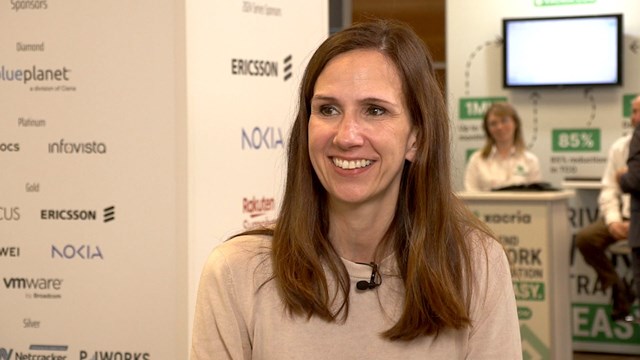
- Chip designer Arm lures major potential investors
- Samsung and Intel expand partnership for vRAN boost
- Verizon is to hang up its video conferencing tool
In today’s industry news roundup: Separate reports link Apple, Samsung and Amazon with plans to invest in chip designer Arm; Samsung and Intel rekindle relationship to offer ‘cutting-edge’ virtualised RAN (vRAN) solutions; Verizon is to sunset the video conferencing service it bought for $400m; and much more!
Apple and Samsung are both reportedly set to invest in Cambridge, UK-based chip designer Arm, according to Nikkei Asia, as it counts down to an IPO in September, which is expected to bring in more than $60bn – the largest so far this year. The two big mobile device giants aren’t alone. A who’s who of global chip-makers is also lining up to get shares as soon as they are listed. The reason? Arm designs are central to nearly all the world’s smartphones, which was why Nvidia wanted to buy it from SoftBank, an approach rejected by the UK regulators who rightly regard Arm’s value as contingent on its independence from all its customers. If Arm was bought up by just one of the big tech beasts, then it would soon lose its trusted position. So current owner SoftBank has devised a share assignment scheme to guarantee that there are enough shareholders among the interested parties to ensure stability, enabling Arm to stay independent.
Staying with Arm… Amazon also wants to become a ‘cornerstone investor’ in Arm, according to Reuters, which claims Amazon’s interest has not previously been reported. Amazon already makes a chip of its own, called Graviton, using Arm’s low-powered designs. And nor is Amazon likely to be the last to signal a desire to join the party either, Reuters has reported, claiming that Arm has been in talks with about 10 technology companies, including jilted Nvidia and Alphabet (Google).
And still on Samsung and chips… The South Korean company has just announced that it will expand its collaboration with Intel on product innovation with a virtualised radio access network (vRAN). Samsung is to integrate its own vRAN 3.0 software with Intel’s 4th Gen Xeon Scalable processors and Intel’s vRAN Boost to, well… boost its offering. The enhanced vRAN is said to be able to support more cells with the same number of servers, allowing a big step up in power savings and cost efficiency for network operators.
Verizon is reportedly pulling the plug on its video conferencing service BlueJeans. The US operator has sent an email to users stating that the free trial and the ‘BlueJeans Basic’ version will be discontinued on 31 August, according to 9to5Google. It is unclear when the business edition of the service will be pulled. The decision has reportedly been made due to “the changing market landscape”. This development isn’t too much of a shock, as the appeal of remote video conferencing tools has dropped in the wake of Covid-19-related lockdowns ending globally. The US telco bought BlueJeans in 2020 for around $400m – see Blue Jeans shareholders trouser circa $400 million as Verizon buys into Web video conferencing.
San Francisco-based AppDirect, the business-to-business subscription commerce platform, is to expand its partnership with Vodafone Business enabling AppDirect technology advisors and their customers to access all Vodafone’s fixed, mobility and internet of things (IoT) business offerings. The move will enhance AppDirect advisors’ ability to solve complex business challenges for customers, including connecting multinational US customers to parts of Vodafone’s global network, according to the partners. The agreement also supports advisors in securing international opportunities with options to deliver Vodafone’s fixed, mobile and IoT connectivity and solutions globally. Read more here.
Safaricom has announced that its board director, Michael Joseph, has resigned with effect from 1 August, after more than 20 years at the company. Having joined in 2000, Joseph has held various positions at the African telco, including being its founding CEO and overseeing the launch and “phenomenal growth” of Safaricom’s mobile money service M-PESA. His decision to leave Safaricom was driven by a desire to focus on other ventures, including serving as chairman of Kenya Airways and as a director in other organisations. Read more.
Researchers at Bangor University’s Digital Signal Processing (DSP) Centre claim to have come up with an optical transceiver design that overcomes the need to use separate point-to-point (P2P) devices running in parallel across a network that might otherwise benefit from a less costly point-to-multipoint (P2MP) solution. The problem is that the ‘point-to-point in parallel’ approach, which enables different pairs of transceivers to make use of the same high-speed link since each pair can be running at different speeds using less or more spectrum than the others, lacks the flexibility to dynamically make the best use of the available bandwidth. The new solution, according to the Welsh university researchers, involves developing a P2MP arrangement in which the transceivers “dynamically grow and shrink channels depending on the network’s traffic status.” Dr Wei Jin, one of the co-authors of the findings said, “The breakthrough… holds tremendous potential for revolutionising existing optical access networks by transforming their virtual network topologies from P2P to P2MP in a scalable, flexible, low-latency, and cost-effective manner.” (See the article by Bangor University for more information).
- The staff, TelecomTV




